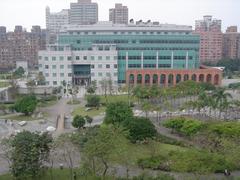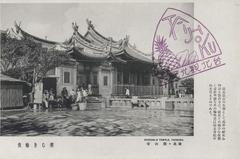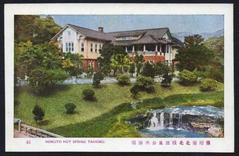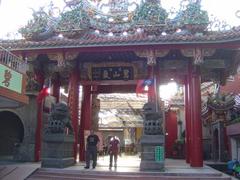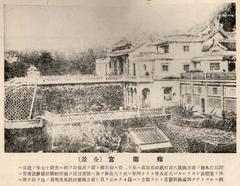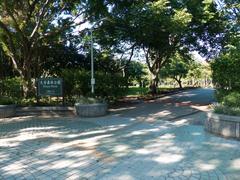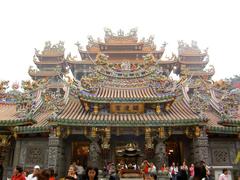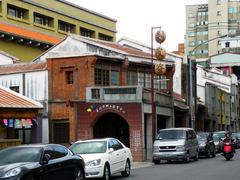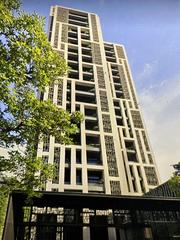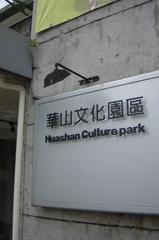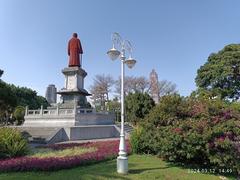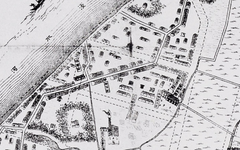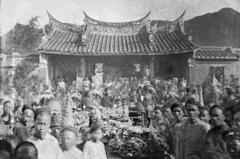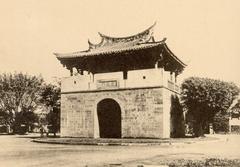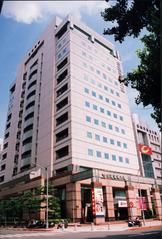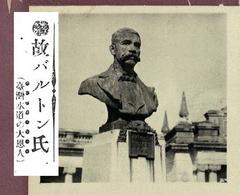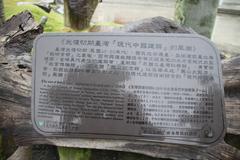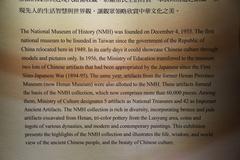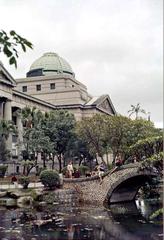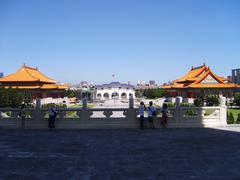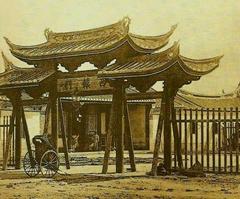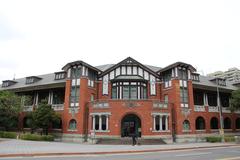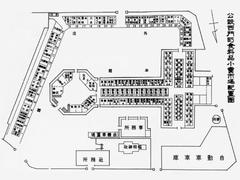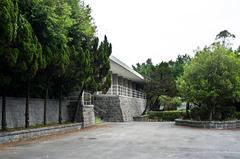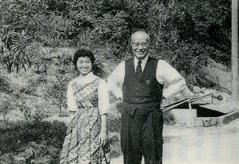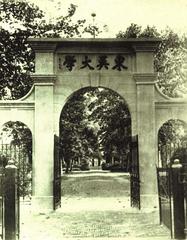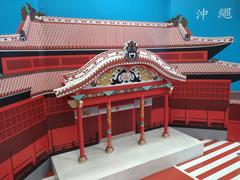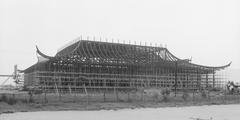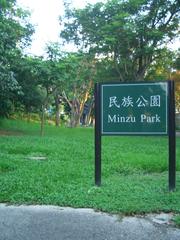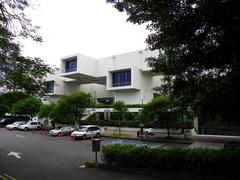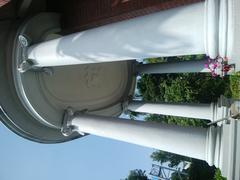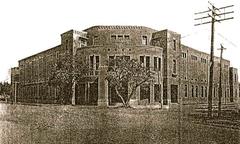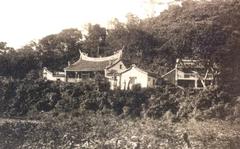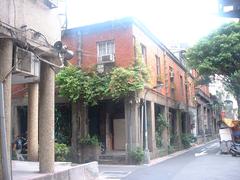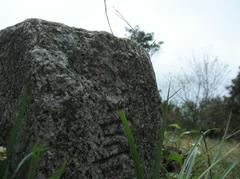Visiting Xianse Temple in Taipei: Hours, Tickets, and Tips
Date: 19/07/2024
Introduction
Xianse Temple, known locally as 先嗇宮, is one of Taipei’s most treasured historical sites, offering a deep dive into the rich cultural and religious heritage of Taiwan. Established in 1751 during the Qing Dynasty, this landmark has evolved from a simple wooden structure to a grand temple, reflecting centuries of architectural and cultural transformations (Taipei Times). Dedicated to Baosheng Dadi, the God of Medicine, the temple also honors deities such as Mazu and Guanyin, mirroring the diverse spiritual needs of its community (Cultural Taiwan). Its historical significance, coupled with its role as a cultural hub, makes Xianse Temple a must-visit for both tourists and locals alike. This comprehensive guide will provide detailed information on the temple’s history, visitor tips, special features, and community involvement, ensuring a memorable and respectful visit.
Table of Contents
- Introduction
- History of Xianse Temple
- Visitor Information
- Special Features and Events
- Community Involvement and Modern-Day Relevance
- Challenges and Future Prospects
- FAQs
- Conclusion
History of Xianse Temple
Origins and Early History
Xianse Temple’s origins date back to the Qing Dynasty, established in 1751 by settlers from Zhangzhou, Fujian Province. These settlers brought with them the worship of Baosheng Dadi, the God of Medicine. Initially constructed as a modest wooden building, the temple served as a spiritual center for these early settlers, providing a place for worship and community gatherings.
Architectural Evolution
Over the centuries, Xianse Temple has undergone several renovations and expansions. Significant renovations took place in 1824, 1867, and 1917, each adding to the temple’s architectural grandeur. The most recent major renovation occurred in 1984, aiming to restore the temple to its former glory while preserving its historical integrity. The architecture is a blend of traditional Chinese styles, featuring intricate carvings, colorful murals, and ornate roof decorations.
Cultural Significance
The temple is dedicated to Baosheng Dadi, revered for his healing powers. It also houses other deities such as Mazu, the Goddess of the Sea, and Guanyin, the Goddess of Mercy. These deities reflect the diverse spiritual needs of the community and highlight the temple’s role as a multifaceted religious center.
Historical Events
Throughout its history, Xianse Temple has been a focal point for various historical events and social movements. During the Japanese colonial period (1895-1945), the temple served as a hub for cultural preservation and resistance against assimilation policies. In the post-war era, it continued to be a center for community activities, including educational programs and charitable events.
Preservation Efforts
Designated as a historical site by the Taipei City Government in 1985, Xianse Temple has been the focus of various preservation projects. These efforts, supported by both public and private funding, aim to maintain the temple’s structural and artistic elements.
Visitor Information
Visiting Hours
Xianse Temple is open daily from 6:00 AM to 9:00 PM, allowing ample time for visitors to explore.
Ticket Prices
Admission to the temple is free, although donations are appreciated to support maintenance and preservation efforts.
Travel Tips
- Location: The temple is located in Taipei’s Xinzhuang District. It is easily accessible by public transportation, including buses and the MRT.
- Best Time to Visit: Early mornings or late afternoons are ideal for a peaceful visit. Avoid weekends and public holidays if you prefer a less crowded experience.
- Dress Code: Modest attire is recommended out of respect for the religious site.
Nearby Attractions
- Lin Family Mansion and Garden: A well-preserved traditional Chinese garden located nearby.
- Xinzhuang Baseball Stadium: For sports enthusiasts, this is another interesting spot to visit.
Accessibility
The temple is wheelchair accessible, with ramps and accessible restrooms available.
Special Features and Events
Notable Features
- Main Hall (大殿): The heart of the temple, housing the statue of Baosheng Dadi. The hall features intricate wood carvings and murals depicting scenes from Chinese mythology and history.
- Drum Tower (鼓樓): Used during various ceremonies and festivals, symbolizing the temple’s historical role in community communication.
- Stone Lions (石獅): These masterpieces of traditional Chinese sculpture guard the entrance and are believed to ward off evil spirits.
Annual Baosheng Cultural Festival
This major event features traditional performances, parades, and rituals, drawing large crowds and media attention. It not only celebrates the temple’s heritage but also promotes cultural tourism in Taipei.
Guided Tours and Photographic Spots
Guided tours are available upon request, offering in-depth insights into the temple’s history and significance. The temple’s architecture and decorations make it a popular spot for photography.
Community Involvement and Modern-Day Relevance
Community Engagement
Xianse Temple serves as a venue for various community events, including weddings, funerals, and festivals. The temple’s management committee actively engages with the community, organizing educational programs, health clinics, and charitable activities.
Current Relevance and Activities
Today, Xianse Temple remains a vibrant and active place of worship, attracting thousands of visitors each year. The temple’s annual Baosheng Cultural Festival is a major event that draws large crowds and media attention.
Challenges and Future Prospects
Despite its significance, Xianse Temple faces challenges such as urban development and changing social dynamics. Efforts by the community, government, and cultural organizations aim to address these challenges. Future prospects include further restoration projects, enhanced visitor facilities, and increased cultural programming.
FAQs
What are the visiting hours for Xianse Temple?
The temple is open daily from 6:00 AM to 9:00 PM.
Is there an admission fee?
Admission is free, although donations are appreciated.
How can I get to Xianse Temple?
The temple is located in Taipei’s Xinzhuang District and is easily accessible by public transportation, including buses and the MRT.
Are there any special events at the temple?
Yes, the annual Baosheng Cultural Festival features traditional performances, parades, and rituals.
Conclusion
Xianse Temple is a historical and cultural gem in Taipei, offering a rich blend of history, architecture, and community involvement. Whether you’re visiting for spiritual reasons or to explore its historical significance, the temple provides a unique and enriching experience. For more detailed information, visit the official website of Xianse Temple or refer to the Taipei City Government’s cultural heritage page.
References
- Taipei Times, 2021, Taipei Times
- Cultural Taiwan, Cultural Taiwan
- Taipei City Government, Taipei City Government
